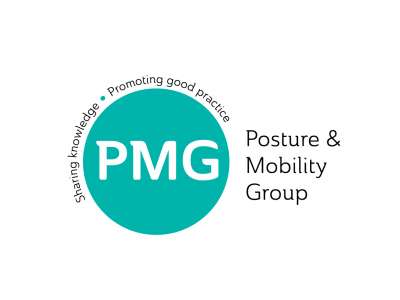
My background is in medical engineering in the private sector. Since then, I have completed the NHS Scientist Training programme, specialising in rehabilitation engineering. This provided me with valuable clinical experience; however, I had limited exposure to the areas of posture and mobility until I started my job as a rehabilitation engineer at Roehampton wheelchair service. It was a steep learning curve, especially in the first few months and, one year on, I was still quite new to the field.
I first learned about the Posture and Mobility Group (PMG) from other members of my team. I instantly became interested and joined up. Having heard about the acclaimed annual conference organised by PMG, I was very keen to attend. It appeared that this would be a great way to get a broader picture of the wheelchair and special seating service provision in the NHS, see a wide range of products, meet the suppliers, and learn about the findings of the latest research in this area.
Training budgets within our trust have been hit hard by the austerity measures, so I knew that obtaining funding from my employer would be a challenge. I therefore applied for a PMG bursary for newly-qualified professionals to cover the costs of attendance, and was pleased to learn the favourable decision. With arrangements in place, I was going to Leeds open-minded and ready to dive into what promised to be an intense three-day experience comprised of the equipment exhibition, talks by specialists in the field and social events.
The exhibition was a great showcase of products by leading manufacturers and less well-known suppliers. I spent hours walking around the stands and engaging in discussions with the exhibitors and colleagues. With a vast array of products on display, it was possible to compare similar products side by side. Also, it was a great opportunity to check out newly launched products and accessories.
Social events scheduled throughout the conference made it easy to meet people working in the field and, being a newcomer, I was overwhelmed by the warm welcome. Everyone was very approachable, and it was useful to share experiences with colleagues from other wheelchair services across the country.
The talks and posters presented a wide range of topics in posture and mobility. The quality of research varied; to me this highlights the difficulties that any healthcare research is bound to face – small sample sizes, absence of a “gold standard” procedure, and lack of appropriate validated outcome measures, to name a few. Decision-making in posture and mobility assessments is often based on past experience and observation, rather than on scientific theories; lack of standardisation and consistency across the services leaves both users and service providers frustrated. These issues need to be tackled in order to produce a clinically relevant and objective evidence base.
Jane Fontein’s talk about wheelchair setup and weight was the one that left the most long-lasting effect on me. It highlighted the importance of correct manual chair set-up for each user and the compound effect of various accessories on the overall weight of a wheelchair. It was also tailored to the NHS chair provision and discussed not only the lightweight active user chairs, but also the small changes that can be made to medium active wheelchairs to make them lighter and more manoeuvrable. The speaker suggested some good options that can make propelling easier for different client groups, such as bariatric or elderly users.
The PMG conference has definitely lived up to its unofficial title of “event of the year” in the posture and mobility field. I’ve learned a lot, met many interesting people, and discovered new products and accessories that I can add to my toolkit.
Kristina Bolsakova
Rehabilitation Engineer
Roehampton Wheelchair Service






.jpg)



no comments
Add your comment...